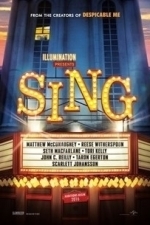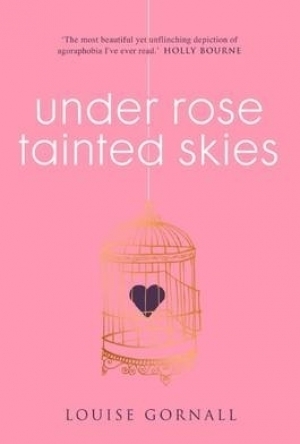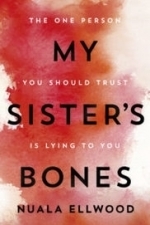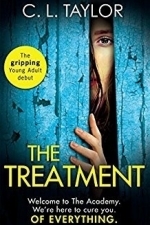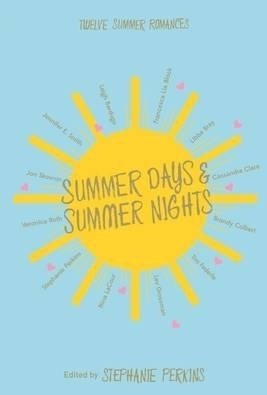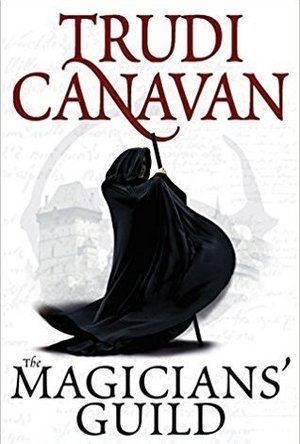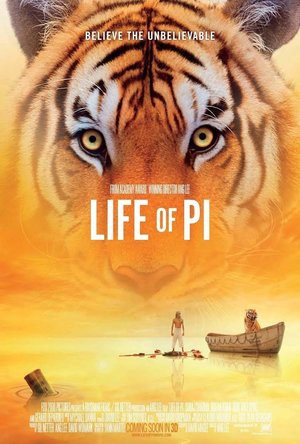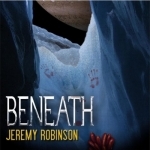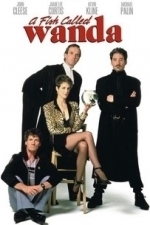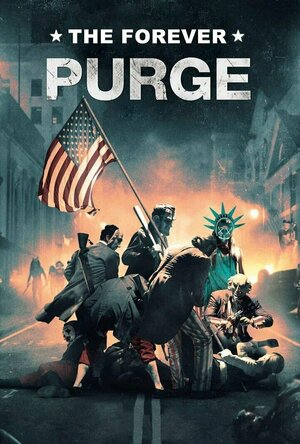Search
Search results
Movie Metropolis (309 KP) rated Sing (2016) in Movies
Jun 11, 2019
Fun for all the family
Talking animated animals are big business over in Hollywood. After all, Disney’s Zootopia was one of only a handful of films to gross over $1billion last year. Its competitor, The Secret Life of Pets performed well but wasn’t critically successful.
Here, the company behind that second film, Illumination Entertainment, try to get the genre right with Sing. But are we looking at the next superstar of the animated genre?
Koala Buster Moon (Matthew McConaughey) presides over a once-grand theatre that has recently fallen on hard times. An eternal optimist, he loves his work enormously and will do anything to preserve it. Facing the crumbling of his life’s ambition, he takes one final chance to restore his fading jewel to its former glory by producing a singing competition, with eternal glory facing the winner.
There’s an impressive roster of talent on offer in Sing, something that parents will no doubt enjoy slightly more than the offspring they no doubt have to bring with them. With Matthew McConaughey taking the lead role, Taron Egerton, Reese Witherspoon, Scarlett Johansson and Seth McFarlane to name a few all lend their voices. There’s even a role for Brit-favourite Jennifer Saunders as a grumpy old sheep, it’s not ground-breaking, but it’s immensely likeable stuff.
Illumination Entertainment has brought us the brilliant Despicable Me franchise as well as its ridiculously successful spin-off Minions, but they’ve been criticised heavily for relying too much on the funny yellow critters to cash their paycheques. Thankfully, bar the now infamous company logo, the tic-tac shaped creatures are nowhere to be found and Sing is a vastly entertaining movie, in spite of their absence.
Whilst it’s true that the animation lacks the depth or fluidity of offerings from Pixar, Disney, and Dreamworks, there is a certain charm to its simplistic colour palate that children will find endearing. The plot is woefully unoriginal but director Garth Jennings, in his first animated feature, utilises that well, cleverly referencing the many talent shows that feature on our television screens – including those we are sick of.
There are some moral lessons in here too. Tori Kelly’s stage-shy elephant Meena has a great story arc that sees her face her fears and embrace her talents, whilst Taron Egerton’s gorilla Johnny stands up to his criminal father and learns that a life of crime doesn’t always pay.
In fact, only Seth MacFarlane’s obnoxious mouse Mike fails to make an impact on the plot, with his berating of an asthmatic sheep in the cleverly produced opening sequence coming across a little crude in comparison to the rest of the script.
Overall, Sing is a great film to hold the kid’s attention as we approach the half-term holidays. It would be easy to criticise it for lacking an original story, but there’s more to offer here than a half-baked plot. It’s beautifully voiced and reasonably well animated. Illumination Entertainment may not have topped Zootopia, but this is their best offering outside of Despicable Me by a country mile.
https://moviemetropolis.net/2017/01/28/fun-for-all-the-family-sing-review/
Here, the company behind that second film, Illumination Entertainment, try to get the genre right with Sing. But are we looking at the next superstar of the animated genre?
Koala Buster Moon (Matthew McConaughey) presides over a once-grand theatre that has recently fallen on hard times. An eternal optimist, he loves his work enormously and will do anything to preserve it. Facing the crumbling of his life’s ambition, he takes one final chance to restore his fading jewel to its former glory by producing a singing competition, with eternal glory facing the winner.
There’s an impressive roster of talent on offer in Sing, something that parents will no doubt enjoy slightly more than the offspring they no doubt have to bring with them. With Matthew McConaughey taking the lead role, Taron Egerton, Reese Witherspoon, Scarlett Johansson and Seth McFarlane to name a few all lend their voices. There’s even a role for Brit-favourite Jennifer Saunders as a grumpy old sheep, it’s not ground-breaking, but it’s immensely likeable stuff.
Illumination Entertainment has brought us the brilliant Despicable Me franchise as well as its ridiculously successful spin-off Minions, but they’ve been criticised heavily for relying too much on the funny yellow critters to cash their paycheques. Thankfully, bar the now infamous company logo, the tic-tac shaped creatures are nowhere to be found and Sing is a vastly entertaining movie, in spite of their absence.
Whilst it’s true that the animation lacks the depth or fluidity of offerings from Pixar, Disney, and Dreamworks, there is a certain charm to its simplistic colour palate that children will find endearing. The plot is woefully unoriginal but director Garth Jennings, in his first animated feature, utilises that well, cleverly referencing the many talent shows that feature on our television screens – including those we are sick of.
There are some moral lessons in here too. Tori Kelly’s stage-shy elephant Meena has a great story arc that sees her face her fears and embrace her talents, whilst Taron Egerton’s gorilla Johnny stands up to his criminal father and learns that a life of crime doesn’t always pay.
In fact, only Seth MacFarlane’s obnoxious mouse Mike fails to make an impact on the plot, with his berating of an asthmatic sheep in the cleverly produced opening sequence coming across a little crude in comparison to the rest of the script.
Overall, Sing is a great film to hold the kid’s attention as we approach the half-term holidays. It would be easy to criticise it for lacking an original story, but there’s more to offer here than a half-baked plot. It’s beautifully voiced and reasonably well animated. Illumination Entertainment may not have topped Zootopia, but this is their best offering outside of Despicable Me by a country mile.
https://moviemetropolis.net/2017/01/28/fun-for-all-the-family-sing-review/
Kristy H (1252 KP) rated Under Rose-Tainted Skies in Books
Feb 13, 2018
Norah is a mentally ill teen struggling with agoraphobia and OCD. She lives with her mom and hasn't attended school in over four years -- in fact, she really hasn't had what society would deem a "normal" outing in that time. Her interactions are with her mom, her therapist, and the online world: watching her former friends live their lives via social media. When a new boy moves in next door, Norah doesn't expect much to change. But when Luke catches Norah trying to fish in groceries left outside on her porch, he helps her. The two slowly begin to interact, and a friendship blossoms. Still, despite the movie "dates" they have at Norah's house and their many chats, Norah is trapped in her own insecurities and fears: Luke deserves a "normal" girl, who can go outside to parties, and who isn't too scared of germs to kiss. What does the future hold in store for Norah and Luke?
This was a lyrical novel offering a rather unflinching portrait of mental illness. (I must point out up front that there's a self-harm/cutting trigger.) The writing is beautiful, almost falling over the line of too flowery at times. Norah is an engaging heroine: a real person living her life with mental illness. The novel truly tries to portray her OCD and agoraphobia in a real (yet humorous at times - it's not just as if you're reading a medical manual) manner. There are some incredibly important passages in this book about how, while Norah may not look sick or mentally ill, she is. I enjoyed her character immensely.
Unfortunately, some of my love of Norah was diminished by slightly unrealistic and odd plotlines. Maybe it's just me, but I was immensely bothered by little things - Luke's dad getting a job at the TSA for 8 weeks (unless that was a long time ago, basically impossible in the security clearance era). In turn, Norah's mom undergoes a hospital stay that seems oddly inserted; further, if the family has money, why is poor, scared Norah forced to stay alone for huge chunks of time without any assistance or company? Luke also comes across as too good to be true sometimes, making me question his character, even when I wanted to buy into the love story. Finally, the ending hinges on a weird twist and seemed to tie things up a little too easily for how strongly the book was presenting Norah's illness throughout.
The angsty teen love genre is certainly in full swing lately and adding in mental illness is popular as well (I think [b:Everything, Everything|18692431|Everything, Everything|Nicola Yoon|https://images.gr-assets.com/books/1450515891s/18692431.jpg|26540216] is my favorite, where it worked so beautifully). Still, I certainly wouldn't not recommend this novel. It's well-written, portrays its mental illnesses very well, and the character of Norah is worth the read alone. There are some flaws, yes, but I did enjoy the book overall. 3.5 stars.
I received a copy of this novel from the publisher and Edelweiss (thank you!) in return for an unbiased review; it is available as of 01/03/2017.
This was a lyrical novel offering a rather unflinching portrait of mental illness. (I must point out up front that there's a self-harm/cutting trigger.) The writing is beautiful, almost falling over the line of too flowery at times. Norah is an engaging heroine: a real person living her life with mental illness. The novel truly tries to portray her OCD and agoraphobia in a real (yet humorous at times - it's not just as if you're reading a medical manual) manner. There are some incredibly important passages in this book about how, while Norah may not look sick or mentally ill, she is. I enjoyed her character immensely.
Unfortunately, some of my love of Norah was diminished by slightly unrealistic and odd plotlines. Maybe it's just me, but I was immensely bothered by little things - Luke's dad getting a job at the TSA for 8 weeks (unless that was a long time ago, basically impossible in the security clearance era). In turn, Norah's mom undergoes a hospital stay that seems oddly inserted; further, if the family has money, why is poor, scared Norah forced to stay alone for huge chunks of time without any assistance or company? Luke also comes across as too good to be true sometimes, making me question his character, even when I wanted to buy into the love story. Finally, the ending hinges on a weird twist and seemed to tie things up a little too easily for how strongly the book was presenting Norah's illness throughout.
The angsty teen love genre is certainly in full swing lately and adding in mental illness is popular as well (I think [b:Everything, Everything|18692431|Everything, Everything|Nicola Yoon|https://images.gr-assets.com/books/1450515891s/18692431.jpg|26540216] is my favorite, where it worked so beautifully). Still, I certainly wouldn't not recommend this novel. It's well-written, portrays its mental illnesses very well, and the character of Norah is worth the read alone. There are some flaws, yes, but I did enjoy the book overall. 3.5 stars.
I received a copy of this novel from the publisher and Edelweiss (thank you!) in return for an unbiased review; it is available as of 01/03/2017.
Zuky the BookBum (15 KP) rated My Sister's Bones in Books
Mar 15, 2018
Also read my review here: http://bookbum.weebly.com/book-reviews/my-sisters-bones-by-nuala-ellwood
NOW AVAILABLE IN THE UK!
<b>Trigger warnings are noted in the first paragraph.</b>
<b><i>Were all of us, every day, just a hairbreadth away from evil. If Ive learnt anything from fifteen years of reporting, its that. But I couldnt expect these people to understand.</b></i>
This is a really heavy read as it deals with some really dark and depressing subjects, <b>such as the war and refugees in Syria, domestic & child abuse, rape, death, mental illness, alcoholism and miscarriages.</b> Dont read this if youre having a low period in your life because this is not going to make you feel any better, throughout its a rather distressing and upsetting story.
Each character in this novel was well developed, no matter how small a part they played in the plot. Ellwood has done a fantastic job with her research into PTSD as Kates fears and anxieties seem so real to the reader. Though Ive never experienced anything even close to PTSD, I can really imagine how terrifying and disturbing it would be, from reading this book. Its definitely the best and most harrowing description of the condition Ive ever read in a fiction novel.
This was a really well presented novel and Im amazed that its a debut! It was excellently written and thought out. My only issue being that sometimes, the timings in this book felt a little off. When Kate and Paul were together, one minute they'd be serving dinner and the next, after a small 5 lined conversation, it would be midnight and time for Paul to leave and Kate to get into bed. It seemed like large chunks of the day would just disappear.
Maybe I shouldnt have read some other peoples reviews on this beforehand, but because I was expecting all these super duper amazing twists, I kind of didnt feel that they were super duper amazing. I also found some of them to be a little far fetched and silly, rather than surprising.
I can definitely see why this has gained so many 5 star ratings, but its all down to personal preference at the end of the day, and this one was just a little too dark for my liking. That's not to say I didn't like this...I enjoyed this a lot, hence the 4 stars. I found myself not wanting to put it down, even when my eyes were telling me it was definitely time for sleep. It was certainly a thrilling and page turning read, but I dont know if I could recommend this to anyone because of all the dark subject matters. It seems like the sort of book some people are going to love for its dark realism and others are going to hate that and find it too distressing to read.
Thanks to Netgalley and Penguin Books UK for giving me the opportunity to read this in exchange for an honest review.
NOW AVAILABLE IN THE UK!
<b>Trigger warnings are noted in the first paragraph.</b>
<b><i>Were all of us, every day, just a hairbreadth away from evil. If Ive learnt anything from fifteen years of reporting, its that. But I couldnt expect these people to understand.</b></i>
This is a really heavy read as it deals with some really dark and depressing subjects, <b>such as the war and refugees in Syria, domestic & child abuse, rape, death, mental illness, alcoholism and miscarriages.</b> Dont read this if youre having a low period in your life because this is not going to make you feel any better, throughout its a rather distressing and upsetting story.
Each character in this novel was well developed, no matter how small a part they played in the plot. Ellwood has done a fantastic job with her research into PTSD as Kates fears and anxieties seem so real to the reader. Though Ive never experienced anything even close to PTSD, I can really imagine how terrifying and disturbing it would be, from reading this book. Its definitely the best and most harrowing description of the condition Ive ever read in a fiction novel.
This was a really well presented novel and Im amazed that its a debut! It was excellently written and thought out. My only issue being that sometimes, the timings in this book felt a little off. When Kate and Paul were together, one minute they'd be serving dinner and the next, after a small 5 lined conversation, it would be midnight and time for Paul to leave and Kate to get into bed. It seemed like large chunks of the day would just disappear.
Maybe I shouldnt have read some other peoples reviews on this beforehand, but because I was expecting all these super duper amazing twists, I kind of didnt feel that they were super duper amazing. I also found some of them to be a little far fetched and silly, rather than surprising.
I can definitely see why this has gained so many 5 star ratings, but its all down to personal preference at the end of the day, and this one was just a little too dark for my liking. That's not to say I didn't like this...I enjoyed this a lot, hence the 4 stars. I found myself not wanting to put it down, even when my eyes were telling me it was definitely time for sleep. It was certainly a thrilling and page turning read, but I dont know if I could recommend this to anyone because of all the dark subject matters. It seems like the sort of book some people are going to love for its dark realism and others are going to hate that and find it too distressing to read.
Thanks to Netgalley and Penguin Books UK for giving me the opportunity to read this in exchange for an honest review.
Hazel (1853 KP) rated The Treatment in Books
Dec 7, 2018
<i>This ARC was provided by the publisher via NetGalley in exchange for an honest review
You have to help me. We’re not being reformed. We’re being brainwashed. </i>When sixteen-year-old Drew Finch receives this note from a strange woman on the street claiming to be her brother’s psychologist, she does not know how to react. But when a speeding car hits the doctor immediately after, Drew begins to think something portentous is afoot. In <i>The Treatment</i> by C. L. Taylor, the Residential Reform Academy in Northumberland is achieving great things, turning antisocial teenagers into model citizens. Mason, Drew’s brother, has been expelled from three different schools and has been sent to the academy as a last resort, however, Drew now suspects that Mason is in trouble.
In a slightly dystopian setting, Drew, a usually quiet girl, easily gets herself admitted to the academy by punching the school bully. With the intention of helping Mason escape, Drew calmly arrives at the Academy, not realising how much danger she is placing herself in. She soon discovers that this would not be a transitory admission and, unless she escapes, she will become like all the other narcotised students.
Trying to remain fastidious whilst avoiding garrulous roommates and staff, Drew desperately tries to concoct an escape plan, however, she may be too late. The more she learns about the Residential Reform Academy, the more she discovers about the evil intentions behind it. How can she break out of the prison-like building and seek help when the government is deeply involved with the whole sordid procedure?
C. L. Taylor devises an exciting scenario that will appeal to fans of Cecelia Ahern’s <i>Flawed</i> and Kazuo Ishiguro’s <i>Never Let Me Go</i>. A thriller that needs a hero in the unlikely form of a teenage girl, <i>The Treatment</i> is a stimulating story about those without a public voice overthrowing the immoral experiments of the dastards in power.
A <i>One Flew Over the Cuckoo’s Nest</i> for teenagers, this book deals with themes of mental health, oppression and the misuse of authority. Told from the perspective of a girl who has been bullied most of her life and coming from a dysfunctional family, there is a lot for the reader to connect with. Although it does not allay the growing fears of governmental conspiracies, The Treatment ends with the positive message that by standing up to those who do you wrong has its rewards, not only for yourself but for those in similar situations too.
<i>The Treatment</i> is a very enjoyable book that pulls the reader into the story, causing them to question how they would handle a similar situation. Would they be as brave as Drew and her new friends, or would they be doomed to a fate of mindless obedience? Compelling from beginning to end, C. L. Taylor’s latest novel is a refreshing break from the over-the-top science fiction dystopian novels, preferring to tackle futuristic ideas that are much closer to home. This is a book that can be fully recommended to the Young Adult community.
You have to help me. We’re not being reformed. We’re being brainwashed. </i>When sixteen-year-old Drew Finch receives this note from a strange woman on the street claiming to be her brother’s psychologist, she does not know how to react. But when a speeding car hits the doctor immediately after, Drew begins to think something portentous is afoot. In <i>The Treatment</i> by C. L. Taylor, the Residential Reform Academy in Northumberland is achieving great things, turning antisocial teenagers into model citizens. Mason, Drew’s brother, has been expelled from three different schools and has been sent to the academy as a last resort, however, Drew now suspects that Mason is in trouble.
In a slightly dystopian setting, Drew, a usually quiet girl, easily gets herself admitted to the academy by punching the school bully. With the intention of helping Mason escape, Drew calmly arrives at the Academy, not realising how much danger she is placing herself in. She soon discovers that this would not be a transitory admission and, unless she escapes, she will become like all the other narcotised students.
Trying to remain fastidious whilst avoiding garrulous roommates and staff, Drew desperately tries to concoct an escape plan, however, she may be too late. The more she learns about the Residential Reform Academy, the more she discovers about the evil intentions behind it. How can she break out of the prison-like building and seek help when the government is deeply involved with the whole sordid procedure?
C. L. Taylor devises an exciting scenario that will appeal to fans of Cecelia Ahern’s <i>Flawed</i> and Kazuo Ishiguro’s <i>Never Let Me Go</i>. A thriller that needs a hero in the unlikely form of a teenage girl, <i>The Treatment</i> is a stimulating story about those without a public voice overthrowing the immoral experiments of the dastards in power.
A <i>One Flew Over the Cuckoo’s Nest</i> for teenagers, this book deals with themes of mental health, oppression and the misuse of authority. Told from the perspective of a girl who has been bullied most of her life and coming from a dysfunctional family, there is a lot for the reader to connect with. Although it does not allay the growing fears of governmental conspiracies, The Treatment ends with the positive message that by standing up to those who do you wrong has its rewards, not only for yourself but for those in similar situations too.
<i>The Treatment</i> is a very enjoyable book that pulls the reader into the story, causing them to question how they would handle a similar situation. Would they be as brave as Drew and her new friends, or would they be doomed to a fate of mindless obedience? Compelling from beginning to end, C. L. Taylor’s latest novel is a refreshing break from the over-the-top science fiction dystopian novels, preferring to tackle futuristic ideas that are much closer to home. This is a book that can be fully recommended to the Young Adult community.
Hazel (1853 KP) rated Summer Days and Summer Nights: Twelve Summer Romances in Books
Dec 17, 2018
<i>This ARC was provided by the publisher via NetGalley in exchange for an honest review </i>
Stephanie Perkins, the best selling author of <i>Anna and the French Kiss</i> has compiled a second anthology of short stories. Twelve selected tales have been included from a variety of young adult authors including: Libba Bray, Veronica Roth, Cassandra Clare and Jennifer E. Smith. For those that have read Perkins’ previous anthology, <i>My True Love Gave To Me</i>, the concept is the same. Twelve love stories set in, as the title, <i>Summer Days and Summer Nights</i>, strongly suggests, the summer.
What can be expected from all the stories in this collection is that they fit snuggly into the Romance genre of young adult fiction. The way the authors decided to tackle this, however, was up to their own interpretations. Thus, the final outcome is a selection of works that fall into a variety of categories: fantasy, contemporary, LGBT, horror, sci-fi etc.
As a result there are a number of different character types and storylines, suggesting that there is bound to be something for everyone. There are lovey-dovey stories, heart-wrenching stories, exciting action stories, implying that there will be at least one you will favour, and hopefully make purchase worthwhile.
It is not merely love that can be found between these pages, so if you are, like me, not overly impressed with teenage love stories, there are other themes to focus on. Many of the main characters are nearing the end of their schooling and thinking about the future: college, perhaps. Readers discover, and possibly relate to, their hopes, doubts and fears of what is to come. Yet while these thoughts are buzzing in their heads they are also trying to enjoy their summers, some with summer jobs, others hanging out with friends. Alongside all of this are darker issues of depression, cancer and parents divorcing; events that many teenagers unfortunately have to deal with. So, throughout all the make-ups and break-ups, there is so much more going on under the surface.
It is always difficult to decide what age range “Young Adult” refers to. Some may assume it is anyone in their teens, however in the case of <i>Summer Days and Summer Nights</i> I would label it a book for older teenagers, those of similar ages to the characters depicted: sixteen to nineteen. This is due to the slightly adult themes of a few of the stories and the amount of swearing many of the authors resort to.
Unfortunately for me, I did not find a perfect story within this collection. There were some I enjoyed more than others; likewise there were some I was not keen on at all. It is for this reason I have only given a rating of three stars. I do not want to put prospective readers off however as this is merely a case of personal preferences and not a true reflection of the authors’ exceptional writing skills.
Stephanie Perkins, the best selling author of <i>Anna and the French Kiss</i> has compiled a second anthology of short stories. Twelve selected tales have been included from a variety of young adult authors including: Libba Bray, Veronica Roth, Cassandra Clare and Jennifer E. Smith. For those that have read Perkins’ previous anthology, <i>My True Love Gave To Me</i>, the concept is the same. Twelve love stories set in, as the title, <i>Summer Days and Summer Nights</i>, strongly suggests, the summer.
What can be expected from all the stories in this collection is that they fit snuggly into the Romance genre of young adult fiction. The way the authors decided to tackle this, however, was up to their own interpretations. Thus, the final outcome is a selection of works that fall into a variety of categories: fantasy, contemporary, LGBT, horror, sci-fi etc.
As a result there are a number of different character types and storylines, suggesting that there is bound to be something for everyone. There are lovey-dovey stories, heart-wrenching stories, exciting action stories, implying that there will be at least one you will favour, and hopefully make purchase worthwhile.
It is not merely love that can be found between these pages, so if you are, like me, not overly impressed with teenage love stories, there are other themes to focus on. Many of the main characters are nearing the end of their schooling and thinking about the future: college, perhaps. Readers discover, and possibly relate to, their hopes, doubts and fears of what is to come. Yet while these thoughts are buzzing in their heads they are also trying to enjoy their summers, some with summer jobs, others hanging out with friends. Alongside all of this are darker issues of depression, cancer and parents divorcing; events that many teenagers unfortunately have to deal with. So, throughout all the make-ups and break-ups, there is so much more going on under the surface.
It is always difficult to decide what age range “Young Adult” refers to. Some may assume it is anyone in their teens, however in the case of <i>Summer Days and Summer Nights</i> I would label it a book for older teenagers, those of similar ages to the characters depicted: sixteen to nineteen. This is due to the slightly adult themes of a few of the stories and the amount of swearing many of the authors resort to.
Unfortunately for me, I did not find a perfect story within this collection. There were some I enjoyed more than others; likewise there were some I was not keen on at all. It is for this reason I have only given a rating of three stars. I do not want to put prospective readers off however as this is merely a case of personal preferences and not a true reflection of the authors’ exceptional writing skills.
Phil Leader (619 KP) rated The Magicians' Guild (Black Magician Trilogy, #1) in Books
Nov 20, 2019
Trudi Canavan has been on my 'to read' list for a long time (far too long really). I finally found the time to read The Magicians' Guild - book one of the Black Magician trilogy.
The story revolves around Sonea, a girl living amongst the poor and near-poor of Imardin. The city is home to the titular guild, where the greatest magicians in the world learn and teach.
Those showing magical talent only come from the ruling classes. But Sonea has magical talent so the guild need to either break tradition and train her or block her powers as unless she is trained they will unleash themselves and kill her. The problem is that Sonea (along with the rest of the less privileged city dwellers) distrusts and fears the guild.
The book is in two parts - the first involves Sonea hiding from the guild and their attempts to find her. This is quite a clever strategy from a story telling point of view since the world and characters can be gradually introduced. We meet Sonea and her friends, and also the Thieves that control the slums. On the magicians' side we find some are sympathetic towards Sonea while others are outraged at the thought of training a slum girl - some for more personal reasons than others.
The second half involves Sonea's initial training at the guild. I do try not to give away major plot direction in these reviews, but I don't think it's much of a spoiler that she does end up in the guild, given the name of the book. In this part we find out more about magic and the guild, plus the plot that forms the core of this book moves forward and is resolved in a satisfactory - and dramatic - style.
Canavan's writing is focused firmly on character, although the world around them is fully realised, with the slums suitably dingy and grubby and the guild grand and opulent. The characters are allowed to develop through the pages. I found the start a little slow going, but I think that was mostly because the previous book I read was for more action based. There is also very little dramatic tension about Sonea ending up in the guild, but I don't think that is the purpose of the first half of the book anyway.
This story is clearly there to set up the characters for the trilogy as a whole - and as the plot progresses Sonea discovers some things that are clearly going to be important in her future. The way the ending is left is therefore very finely balanced between the resolution of the main plot and leaving the threads for the next book, and Canavan is spot on in delivering this.
Overall I really liked this book and will read the other installments as time allows without hesitation. If you are looking for some brutal anti-hero cutting a swathe of destruction through his enemies this is not the book for you. If you want some careful characterisation and a personality driven and human-scale plot, pick up this book. It is also refreshing to have a female main protagonist in the traditionally macho world of fantasy. Recommended.
The story revolves around Sonea, a girl living amongst the poor and near-poor of Imardin. The city is home to the titular guild, where the greatest magicians in the world learn and teach.
Those showing magical talent only come from the ruling classes. But Sonea has magical talent so the guild need to either break tradition and train her or block her powers as unless she is trained they will unleash themselves and kill her. The problem is that Sonea (along with the rest of the less privileged city dwellers) distrusts and fears the guild.
The book is in two parts - the first involves Sonea hiding from the guild and their attempts to find her. This is quite a clever strategy from a story telling point of view since the world and characters can be gradually introduced. We meet Sonea and her friends, and also the Thieves that control the slums. On the magicians' side we find some are sympathetic towards Sonea while others are outraged at the thought of training a slum girl - some for more personal reasons than others.
The second half involves Sonea's initial training at the guild. I do try not to give away major plot direction in these reviews, but I don't think it's much of a spoiler that she does end up in the guild, given the name of the book. In this part we find out more about magic and the guild, plus the plot that forms the core of this book moves forward and is resolved in a satisfactory - and dramatic - style.
Canavan's writing is focused firmly on character, although the world around them is fully realised, with the slums suitably dingy and grubby and the guild grand and opulent. The characters are allowed to develop through the pages. I found the start a little slow going, but I think that was mostly because the previous book I read was for more action based. There is also very little dramatic tension about Sonea ending up in the guild, but I don't think that is the purpose of the first half of the book anyway.
This story is clearly there to set up the characters for the trilogy as a whole - and as the plot progresses Sonea discovers some things that are clearly going to be important in her future. The way the ending is left is therefore very finely balanced between the resolution of the main plot and leaving the threads for the next book, and Canavan is spot on in delivering this.
Overall I really liked this book and will read the other installments as time allows without hesitation. If you are looking for some brutal anti-hero cutting a swathe of destruction through his enemies this is not the book for you. If you want some careful characterisation and a personality driven and human-scale plot, pick up this book. It is also refreshing to have a female main protagonist in the traditionally macho world of fantasy. Recommended.
Gareth von Kallenbach (980 KP) rated Life Of Pi (2012) in Movies
Aug 7, 2019
When I heard that one of my favorite books was being converted into a movie, I was a little skeptical. Add one of my favorite directors, Ang Lee, and my skepticism started to recede. As many know, Lee is renowned for his artistic vision and cinematography. I fell in love with his vision of “Sense and Sensibility,” “Crouching Tiger, Hidden Dragon,” and “Brokeback Mountain.” To me, if there was a director who could capture the beauty and imagery of this book, it was Lee.
The movie and the book are great parallels of one another. The story revolves around a young Indian boy named Piscine (“Pool” in French) who spent much of his youth in Pondicherry, a French colony of India. Much of the book, and movie, include flash-backs of Pi’s life in India – the ridicule of his name, his father’s ownership of a zoo, etc. When Pi and his family decide to move to Canada due to political concerns (the book covers much more of this, including Pi’s exploration of various spiritualties/religions), they are chartered on a ship. En route, they encounter a fierce storm which capsizes their vessel, leaving Pi on a lifeboat with a Bengal tiger, a hyena, an injured zebra, and an orangutan.
Being the only human on board with said animals, Pi naturally fears for his welfare. He observes the hyena killing the injured zebra and then turning on the orangutan. The orangutan, as one should note, cares for Pi in a very motherly fashion (remember that Pi’s whole family had drowned in the ship), and her death was very difficult for Pi to endure. Eventually, the hyena succumbs to death by the tiger. As further explained in the movie and novel, Pi names the tiger “Richard Parker” and the two of them set out to endure their lives aboard the ship in some strange sort of symbiotic relationship.
Lee’s vision transforms this novel into a brilliant masterpiece. Like “Crouching Tiger, Hidden Dragon,” you will be awed by the cinematography and artistic interpretation he presents. The young actors employed for the role of Pi (Gautam Belur, Ayush Tandon, Suraj Sharma & Irrfan Khan) are downright perfect and I particularly enjoyed Gerard Depardieu as the grizzled and difficult French cook (not a difficult stretch for him as one can imagine). Overall, as an avid lover of Yann Martel’s novel and Ang Lee’s work, I can say this is a beautiful movie and one many will enjoy (even if you haven’t read the novel – which you MUST do).
My only complaint is that while it is a beautiful representation of CGI technology, sometimes it looked a bit too manufactured and fantastical. Their work on the tiger, however, was downright genius (and I personally hate when they create CGI animals instead of working with the real thing – but in this instance it worked very well). The ending and symbolism of this work is what makes it truly a piece of art. If you’re a fan of “Inception” and “The Sixth Sense,” you will enjoy the twist at the end.
Overall, I think this is a lovely representation of the novel and a great movie all around. I highly suggest checking it out.
The movie and the book are great parallels of one another. The story revolves around a young Indian boy named Piscine (“Pool” in French) who spent much of his youth in Pondicherry, a French colony of India. Much of the book, and movie, include flash-backs of Pi’s life in India – the ridicule of his name, his father’s ownership of a zoo, etc. When Pi and his family decide to move to Canada due to political concerns (the book covers much more of this, including Pi’s exploration of various spiritualties/religions), they are chartered on a ship. En route, they encounter a fierce storm which capsizes their vessel, leaving Pi on a lifeboat with a Bengal tiger, a hyena, an injured zebra, and an orangutan.
Being the only human on board with said animals, Pi naturally fears for his welfare. He observes the hyena killing the injured zebra and then turning on the orangutan. The orangutan, as one should note, cares for Pi in a very motherly fashion (remember that Pi’s whole family had drowned in the ship), and her death was very difficult for Pi to endure. Eventually, the hyena succumbs to death by the tiger. As further explained in the movie and novel, Pi names the tiger “Richard Parker” and the two of them set out to endure their lives aboard the ship in some strange sort of symbiotic relationship.
Lee’s vision transforms this novel into a brilliant masterpiece. Like “Crouching Tiger, Hidden Dragon,” you will be awed by the cinematography and artistic interpretation he presents. The young actors employed for the role of Pi (Gautam Belur, Ayush Tandon, Suraj Sharma & Irrfan Khan) are downright perfect and I particularly enjoyed Gerard Depardieu as the grizzled and difficult French cook (not a difficult stretch for him as one can imagine). Overall, as an avid lover of Yann Martel’s novel and Ang Lee’s work, I can say this is a beautiful movie and one many will enjoy (even if you haven’t read the novel – which you MUST do).
My only complaint is that while it is a beautiful representation of CGI technology, sometimes it looked a bit too manufactured and fantastical. Their work on the tiger, however, was downright genius (and I personally hate when they create CGI animals instead of working with the real thing – but in this instance it worked very well). The ending and symbolism of this work is what makes it truly a piece of art. If you’re a fan of “Inception” and “The Sixth Sense,” you will enjoy the twist at the end.
Overall, I think this is a lovely representation of the novel and a great movie all around. I highly suggest checking it out.
BankofMarquis (1832 KP) rated A Fish Called Wanda (1988) in Movies
Jul 2, 2020
A Jolly Good Time
A member of my family mentioned when discussing the 1988 John Cleese comedy A FISH CALLED WANDA that you can tell much about a person over what part of this film that you like the most. Do you like:
a). The John Cleese/Jamie Lee Curtis love story
b). The "caper"
c). The beleaguered, unsuccessful hit-man Ken
d). The old lady and her 3 dogs
e). Kevin Kline as Otto
For me, that's easy - ALL OF IT! I find that A FISH CALLED WANDA is a very funny, richly acted comedy/caper that brings forth 4 characters that are easy to spend 2 hours with. Starting with John Cleese as Barrister Archie Leach. Cleese conceived, wrote, starred-in and (at times) directed this film and his "British humor" (honed from years as a member of the MONTY PYTHON comedy troupe) is in full force here. He has a reserved appearance about him that covers a wild man underneath yearning to break free.
Jamie Lee Curtis is quite good as the center of the film, Wanda Gershwitz, a cunning conman who will stop at nothing - and step over everyone - to get what she wants. I find that Curtis is under-rated as an actress and a comedienne and this picture shows that she can hold her own against 3 comedy greats at the top of their game.
The 2nd member of the Monty Python troupe to appear in this film is the remarkable Michael Palin as hapless hit-man, Ken. He becomes increasingly frustrated and frantic -and increasingly funny - as he attempts to complete his assignment throughout the course of this film.
But...the real star of this film...and the actor/character that steals the film away from everyone else...is Kevin Kline's Oscar winning performance as Otto, Wanda's erstwhile love who has a very high opinion of himself. It is rare that a comedic performance wins an Oscar - Kline's win is the the last one to do so - but it is easy to see why the Academy decided to reward Kline for it is a committed performance that is wild, wacky and over-the-top, but not overtly so. Kline has been very good in many other pictures/performances before and after this film, but he never reached the height that he reached in this film.
The film has veteran director Charles Crichton listed as Director with Cleese listed as co-Director (though Cleese insisted that Crichton did all the work and he only put his name on it to assuage the fears of studio executives over Crichton's advanced age). Well...Crichton does a wonderful job of letting the lunacy explode on the scene while keeping a lid on it and moving the action along at a brisk pace.
Wanda is one of those films that people remember fondly, but do not revisit. I would highly recommend you do, it's a jolly good time.
Letter Grade A-
8 stars (out of 10) and you can take that to the Bank(ofMarquis)
a). The John Cleese/Jamie Lee Curtis love story
b). The "caper"
c). The beleaguered, unsuccessful hit-man Ken
d). The old lady and her 3 dogs
e). Kevin Kline as Otto
For me, that's easy - ALL OF IT! I find that A FISH CALLED WANDA is a very funny, richly acted comedy/caper that brings forth 4 characters that are easy to spend 2 hours with. Starting with John Cleese as Barrister Archie Leach. Cleese conceived, wrote, starred-in and (at times) directed this film and his "British humor" (honed from years as a member of the MONTY PYTHON comedy troupe) is in full force here. He has a reserved appearance about him that covers a wild man underneath yearning to break free.
Jamie Lee Curtis is quite good as the center of the film, Wanda Gershwitz, a cunning conman who will stop at nothing - and step over everyone - to get what she wants. I find that Curtis is under-rated as an actress and a comedienne and this picture shows that she can hold her own against 3 comedy greats at the top of their game.
The 2nd member of the Monty Python troupe to appear in this film is the remarkable Michael Palin as hapless hit-man, Ken. He becomes increasingly frustrated and frantic -and increasingly funny - as he attempts to complete his assignment throughout the course of this film.
But...the real star of this film...and the actor/character that steals the film away from everyone else...is Kevin Kline's Oscar winning performance as Otto, Wanda's erstwhile love who has a very high opinion of himself. It is rare that a comedic performance wins an Oscar - Kline's win is the the last one to do so - but it is easy to see why the Academy decided to reward Kline for it is a committed performance that is wild, wacky and over-the-top, but not overtly so. Kline has been very good in many other pictures/performances before and after this film, but he never reached the height that he reached in this film.
The film has veteran director Charles Crichton listed as Director with Cleese listed as co-Director (though Cleese insisted that Crichton did all the work and he only put his name on it to assuage the fears of studio executives over Crichton's advanced age). Well...Crichton does a wonderful job of letting the lunacy explode on the scene while keeping a lid on it and moving the action along at a brisk pace.
Wanda is one of those films that people remember fondly, but do not revisit. I would highly recommend you do, it's a jolly good time.
Letter Grade A-
8 stars (out of 10) and you can take that to the Bank(ofMarquis)
Gareth von Kallenbach (980 KP) rated The Forever Purge (2021) in Movies
Jun 30, 2021
In what is being billed as the final Purge movie; “The Forever Purge” has arrived and like elements of the prior films; gains traction from current events which have only made elements of the film more chilling seeing how the film was originally planned for July of 2020.
Following the abolition of the Purge at the end of the “Purge Election Year”; the Holiday where all crime is legal for twelve hours is restored due to radical elements fueling fears of illegal immigration and the increase in crime immigrants will bring to the largely crime-free country.
It is not made clear what happened with the new President who was a staunch critic of the Purge and only that it has been restored so citizens prepare for its return by arming up, barricading themselves, or paying for armed security in a fortified locale.
It is against this backdrop that Adela (Ana de Reguera) has come to America fleeing the violence in her country as she enters illegally and finds work. Dylan Tucker (Josh Lucas) is a wealthy Rancher who along with his family hires friends and family of Adela though having some disdain for them and what they stand for.
The Purge comes and goes with the main cast unaffected and as they prepare to resume their lives; roving bands of armed gangs have continued to Purge in violation of the law similar to those who took to the street in protest of the election and plans to eliminate the Purge years prior.
This new group is well organized and has no issues taking on law enforcement and the military forcing Dylan, Adela, and their family and friends to flee for their lives. As the terror spreads, their only safety is to try to make it to Mexico who along with Canada has agreed to a six hour window to allow people to cross to escape the violence.
As the danger mounts, the severity of the movement is known as the authorities seem powerless to control and stop what is called The Forever Purge.
The film uses a slightly different formula than the prior films which focused mainly on a group of people trying to survive the night and the terrors that come with Purge Night. There is a greater emphasis on racism and Xenophobia this time around directed more towards foreigners than minorities and poverty-stricken individuals but the underlying message is the same.
This time around we are given a longer timeframe of terror and more social commentary as there are elements from the film which seem eerily inspired by headlines past and present which makes the film even more chilling.
While the story is rather bare and the characters do not get much development; the movie should give fans of the series what they look forward to although it lacks the dramatic tension of the previous films.
In the end “The Forever Purge” is an interesting new chapter in the series but not one of the stronger entries and serves as an effective finale to the series should this turn out to be the final film.
3 stars out of 5
Following the abolition of the Purge at the end of the “Purge Election Year”; the Holiday where all crime is legal for twelve hours is restored due to radical elements fueling fears of illegal immigration and the increase in crime immigrants will bring to the largely crime-free country.
It is not made clear what happened with the new President who was a staunch critic of the Purge and only that it has been restored so citizens prepare for its return by arming up, barricading themselves, or paying for armed security in a fortified locale.
It is against this backdrop that Adela (Ana de Reguera) has come to America fleeing the violence in her country as she enters illegally and finds work. Dylan Tucker (Josh Lucas) is a wealthy Rancher who along with his family hires friends and family of Adela though having some disdain for them and what they stand for.
The Purge comes and goes with the main cast unaffected and as they prepare to resume their lives; roving bands of armed gangs have continued to Purge in violation of the law similar to those who took to the street in protest of the election and plans to eliminate the Purge years prior.
This new group is well organized and has no issues taking on law enforcement and the military forcing Dylan, Adela, and their family and friends to flee for their lives. As the terror spreads, their only safety is to try to make it to Mexico who along with Canada has agreed to a six hour window to allow people to cross to escape the violence.
As the danger mounts, the severity of the movement is known as the authorities seem powerless to control and stop what is called The Forever Purge.
The film uses a slightly different formula than the prior films which focused mainly on a group of people trying to survive the night and the terrors that come with Purge Night. There is a greater emphasis on racism and Xenophobia this time around directed more towards foreigners than minorities and poverty-stricken individuals but the underlying message is the same.
This time around we are given a longer timeframe of terror and more social commentary as there are elements from the film which seem eerily inspired by headlines past and present which makes the film even more chilling.
While the story is rather bare and the characters do not get much development; the movie should give fans of the series what they look forward to although it lacks the dramatic tension of the previous films.
In the end “The Forever Purge” is an interesting new chapter in the series but not one of the stronger entries and serves as an effective finale to the series should this turn out to be the final film.
3 stars out of 5
